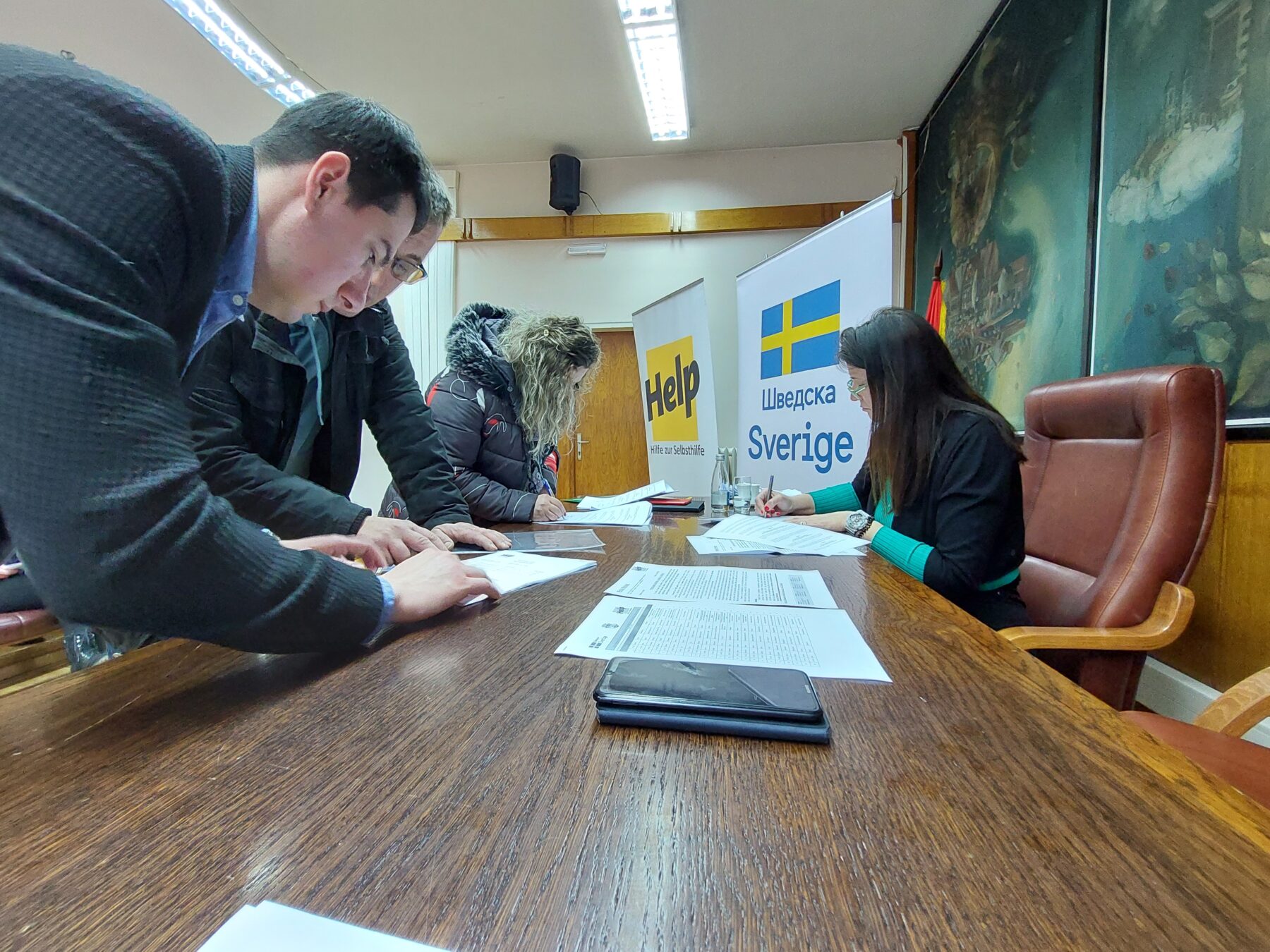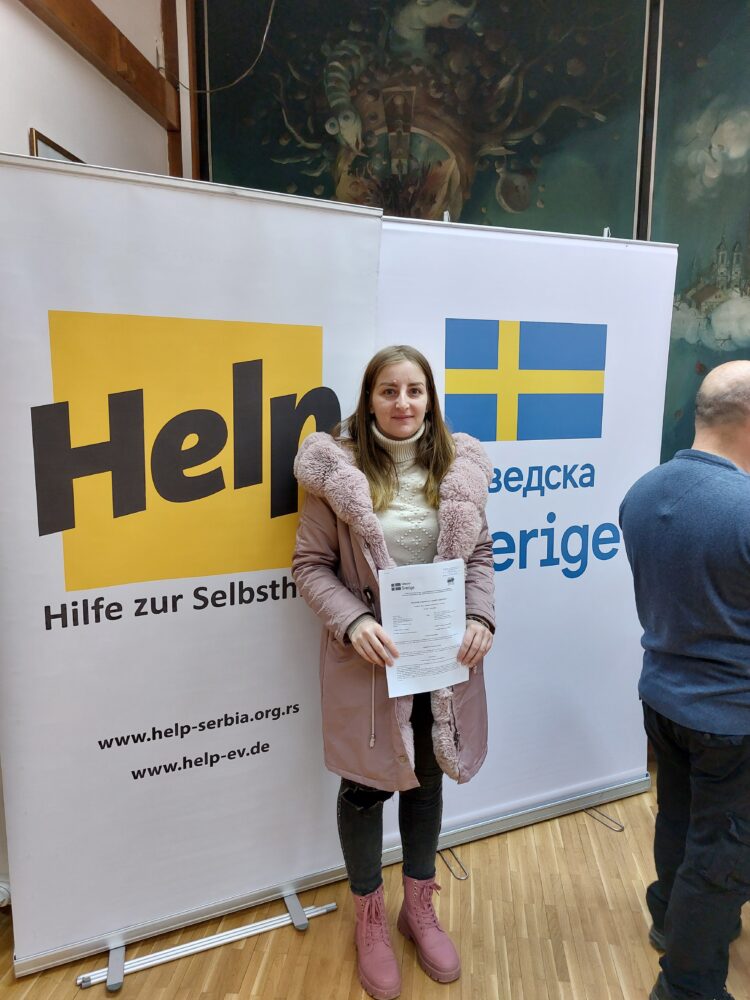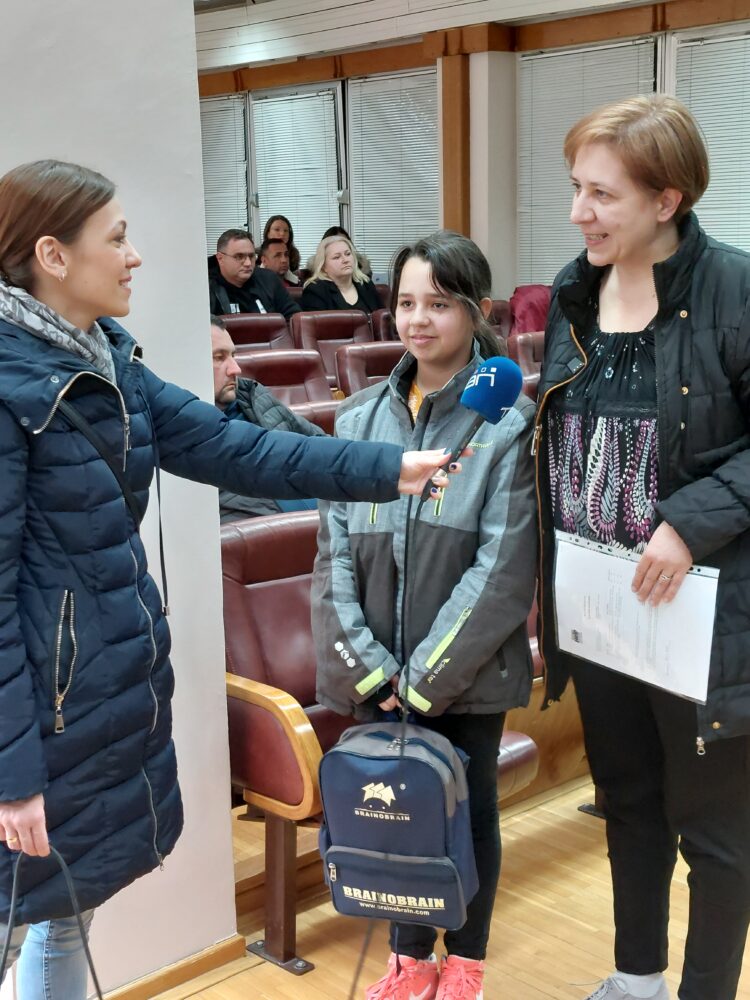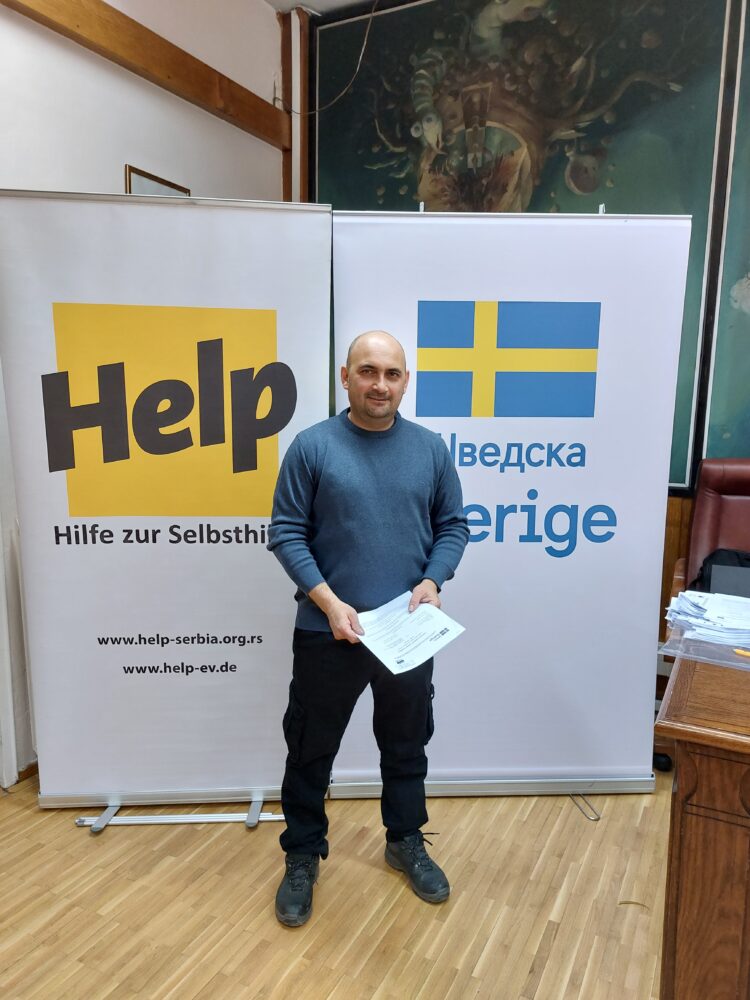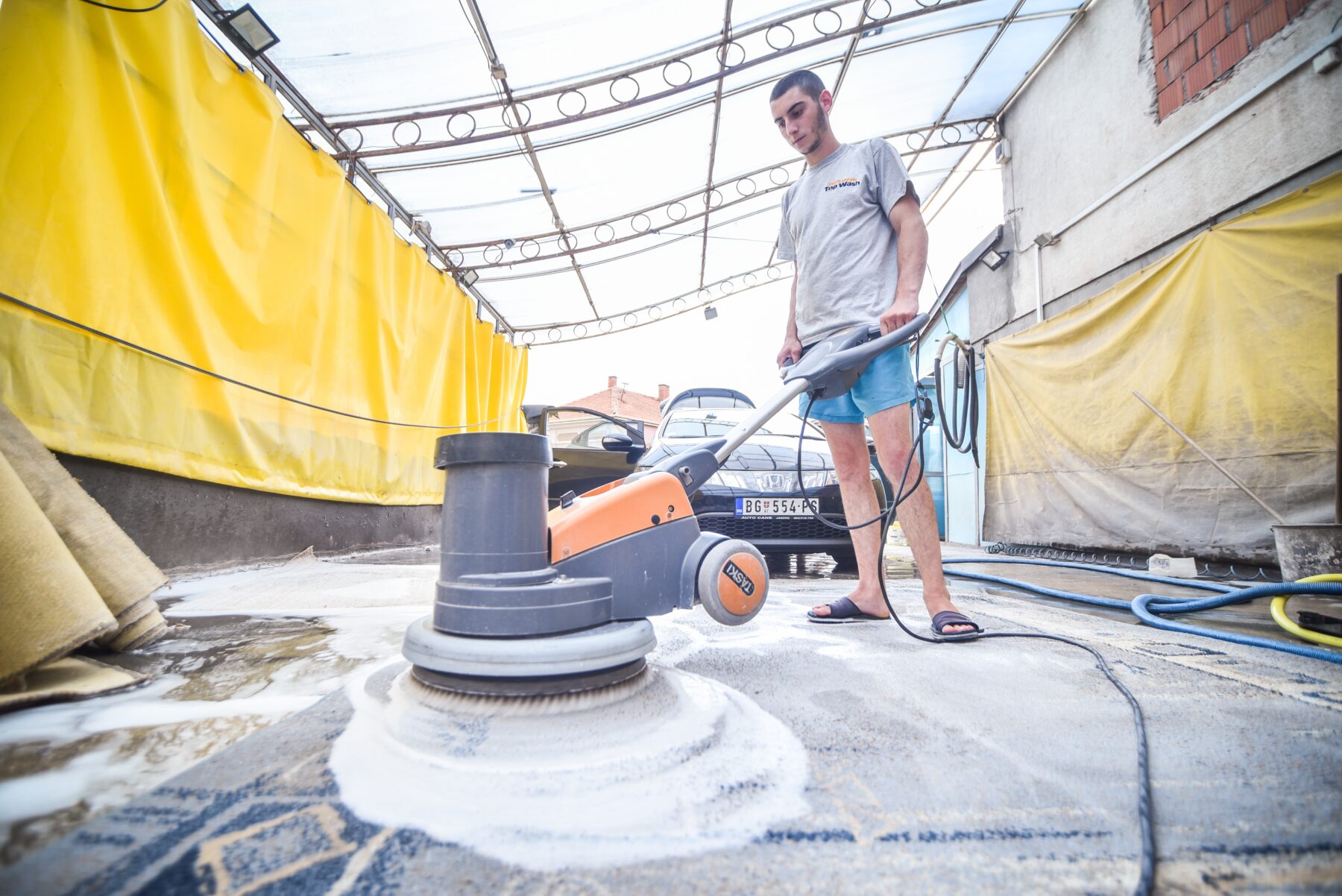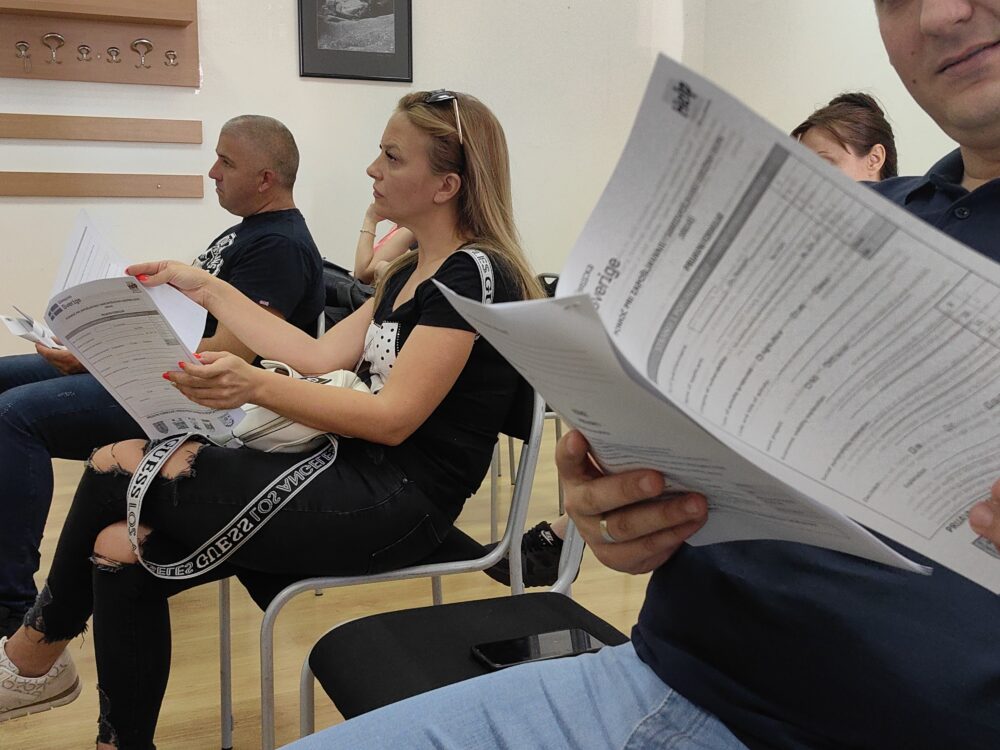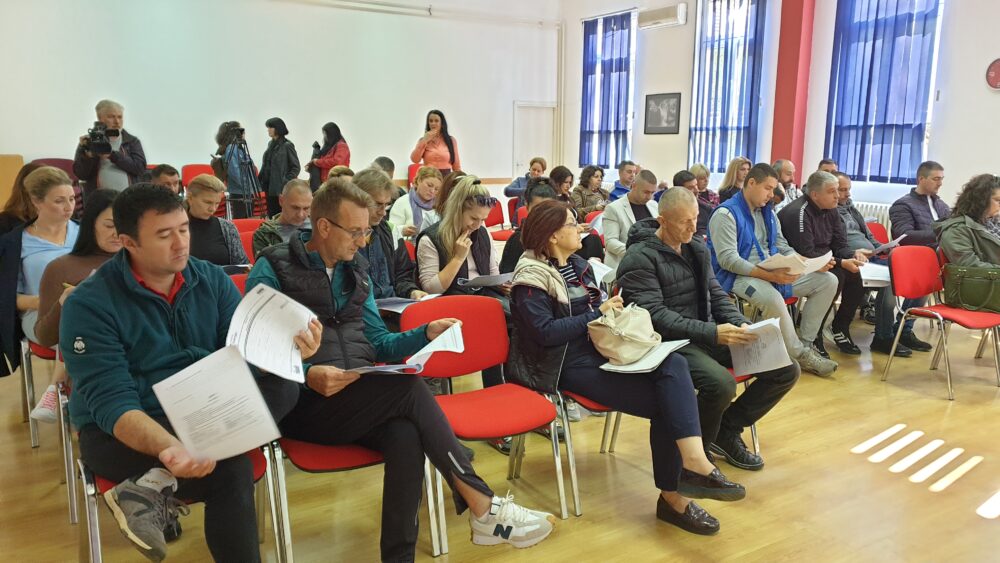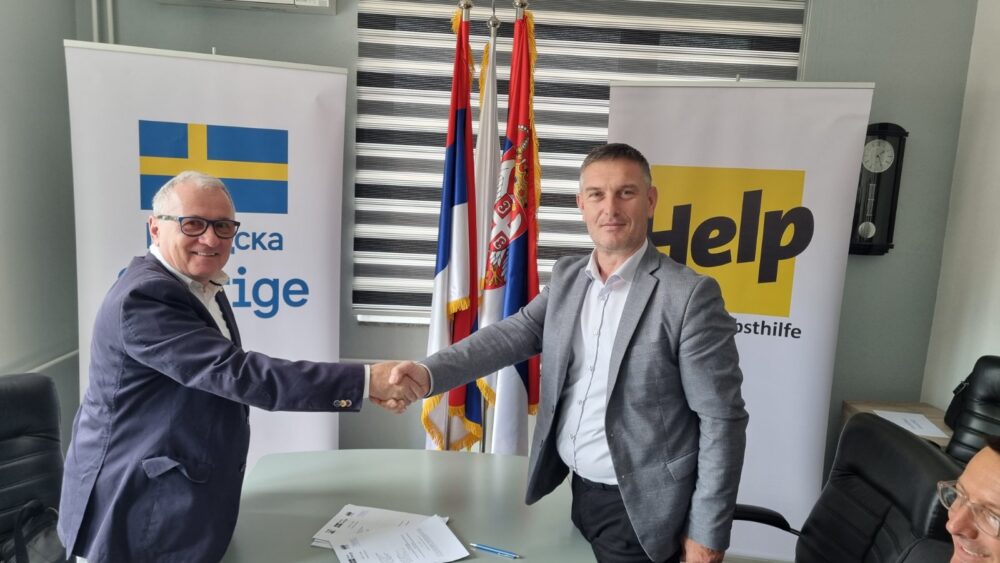New employment support in Pancevo
A 33 grant contracts within the increased employability and income-generation support to vulnerable groups were signed in Pancevo.
Upon two phases of selection, 33 final beneficiaries signed grant contracts on Friday, 18 March 2022, in the premises of the Pancevo City Administration for grants in equipment worth 2,000 or 3,600 EUR. The in-kind grants are being donated within the Help project “Increased employability and income generation for vulnerable groups” co-financed by Sweden through the Swedish International Development Cooperation Agency, Sida, and the City of Pancevo and implemented by Help in cooperation with the City Administration.
Grants were approved for two agricultural, 19 craft and 12 service activities. Of the total number, 45 per cent make women and 24 per cent youth.
One of the signees, Ms Svetlana Advigov, who just last year started in the field of services and registered an educational and creativity centre. This type of service has been expanding in recent years in Serbia and Svetlana already has 13 regular customers. This support in equipment means increased capacities and greater chances for the sustainability of the started activity.
“It means a lot to me because I have started my business last year with the assistance of the National Employment Service. That was just enough to start with, but this donation and this cooperation really mean a lot to me for the further development of my business”.
City Councillor for Employment and Social Policy Mr Milenko Cuckovic, says that the cooperation with Help on this project is in line with the policy of the city administration:
“That is primarily what we are reaching with the local employment action plan, so that as few people as possible in the City of Pancevo are unemployed, as we give them a chance and the opportunity to develop their own business by obtaining certain funds.”
The cooperation agreement between the City and the Help was signed in October 2021 which started the cooperation and activities to achieve the general goal - poverty reduction, social inclusion, sustainable and inclusive economic development and achieving satisfactory working conditions for all by facilitating access to the labour market and employment.
Help Senior Programme Manager and Project Coordinator Ms Milka Djurdjevic thanked the City for the great cooperation and added:
“Today, we signed the grant contracts with 33 final beneficiaries who were approved through two phases of selection. The contract defines our mutual rights and obligations including the obligatory business registration who did not register their business, as well as 10 per cent participation in the value of the donated equipment. They also need to attend business training sessions organised by Help, and they will also be offered various professional training sessions for further improvement of their supported businesses.
We are very happy to have supported as many as 45 per cent of women, minority groups and young people. So, we looked to have in this project supported all those members of the vulnerable categories of the population”.
The category of the rural population is represented by 39 per cent, long-term unemployed with 18 per cent, Roma, minority groups with 15 per cent, and multi-member families with 33 per cent of the total number of supported final beneficiaries.
The total value of direct investment costs in Pancevo, in the first one-year phase of the project, is 75 thousand euros, with the participation of the City of 22 thousand euros.
Help’s 2,8 million EUR project “Increased employability and income generation for vulnerable groups” is financed by Sweden through Swedish International Development Cooperation Agency, Sida, and is implemented in 16 cities and municipalities in Serbia from July 2021 until the end of June 2025. In the first phase, at least 176 in-kind grants worth 2,000 and 3,600 euros will be distributed, as well as business and professional training sessions for beneficiaries and their family members.
Project
Increased employability and income generation for vulnerable groups
Economic empowerment for social inclusion and active participation of vulnerable groups in the society.
